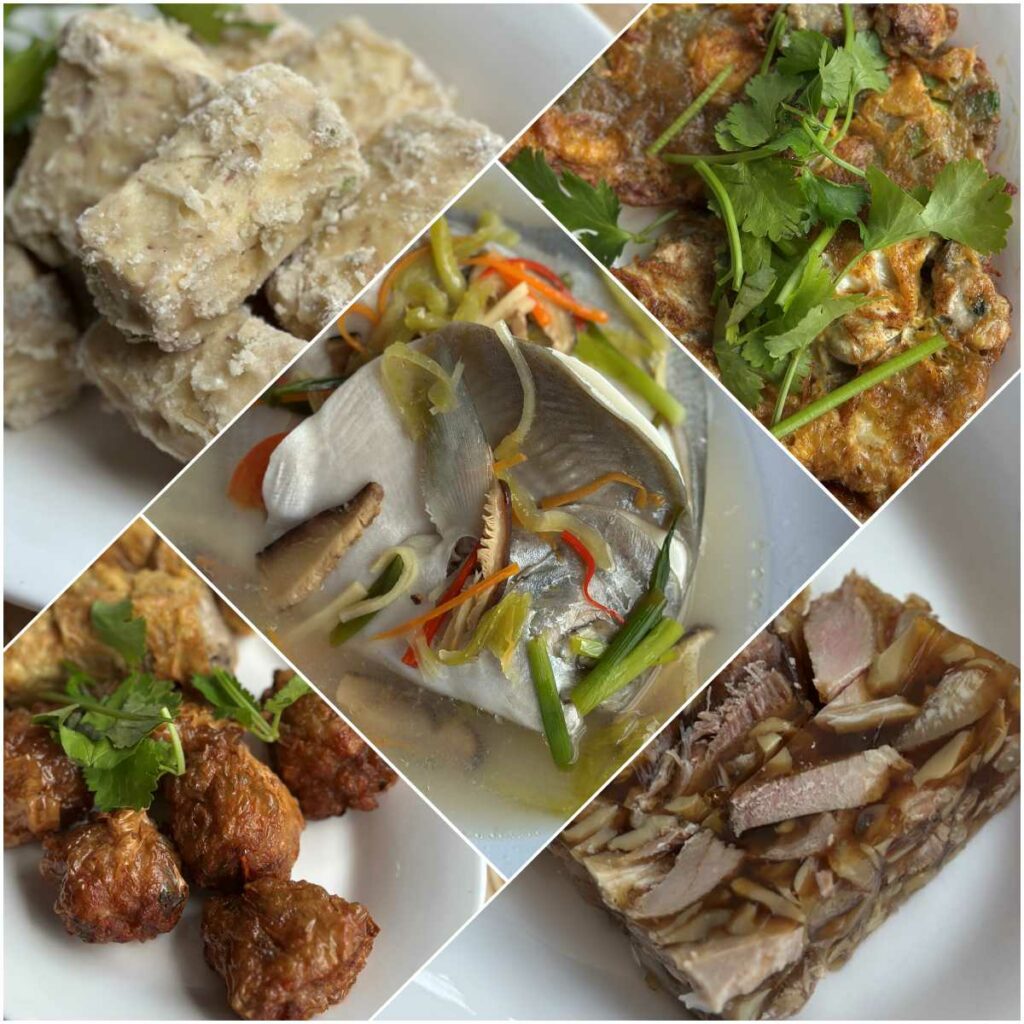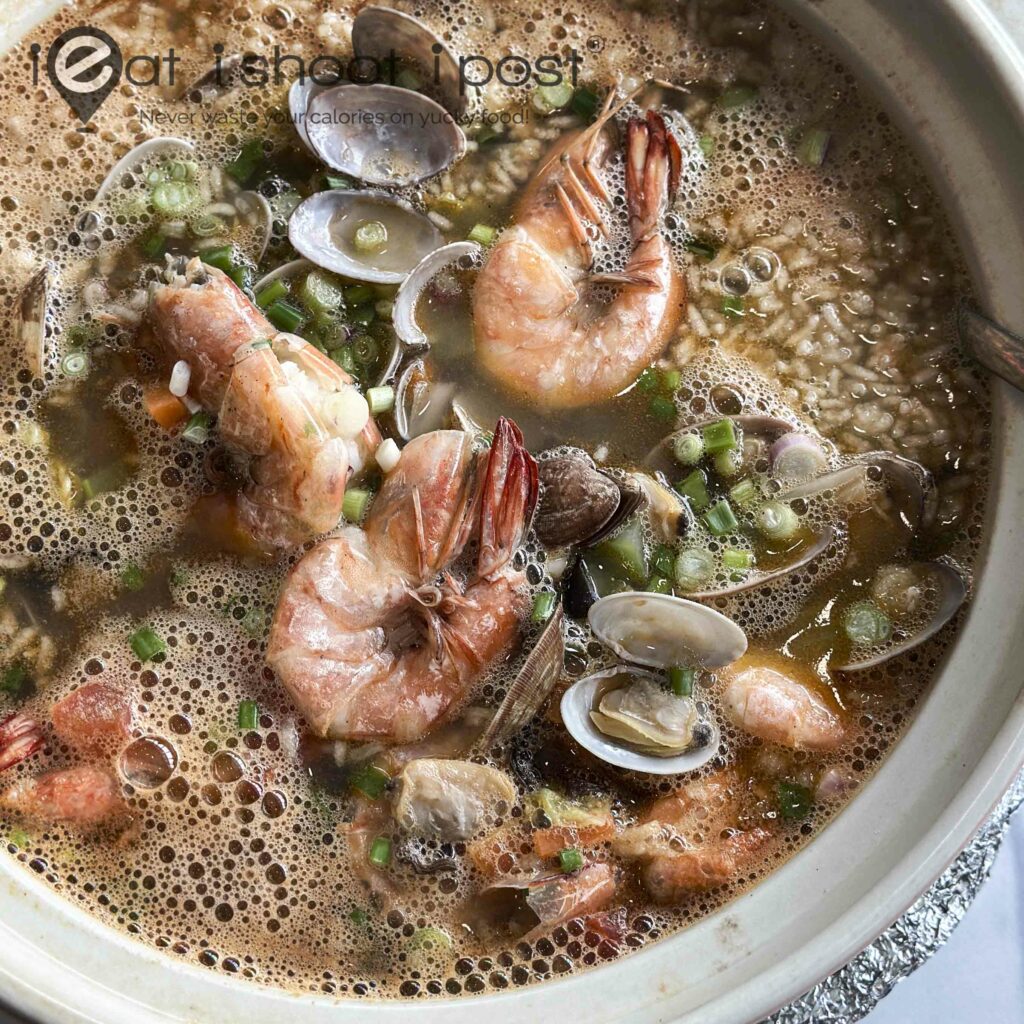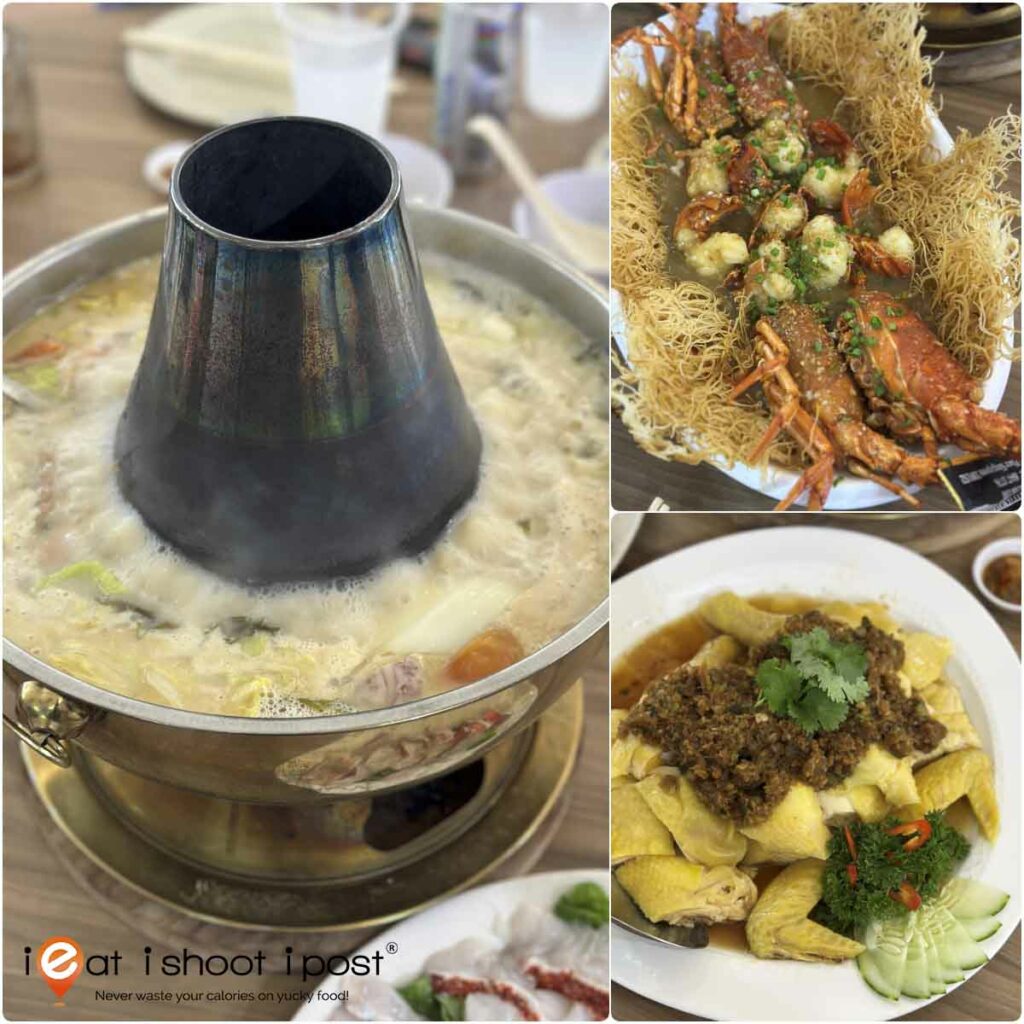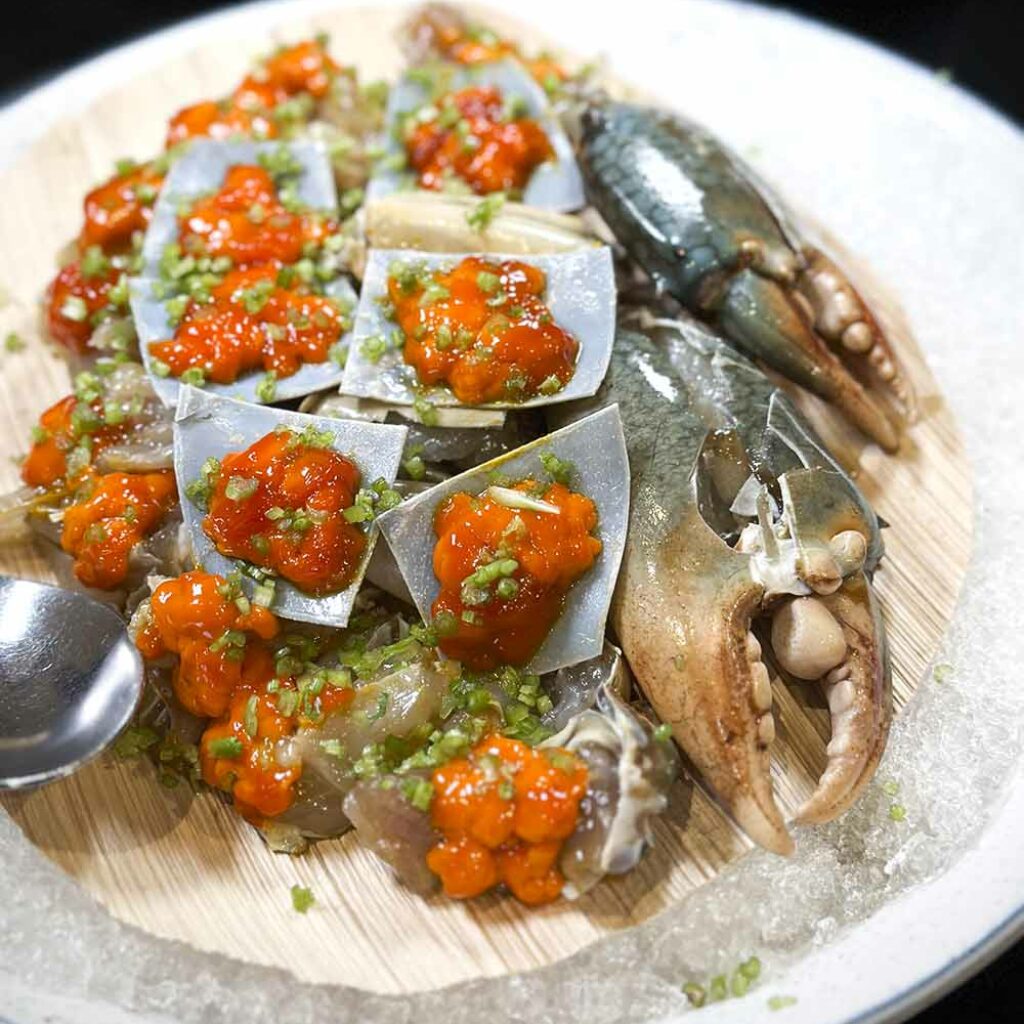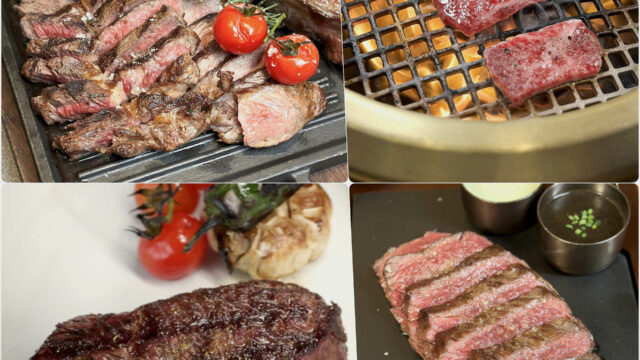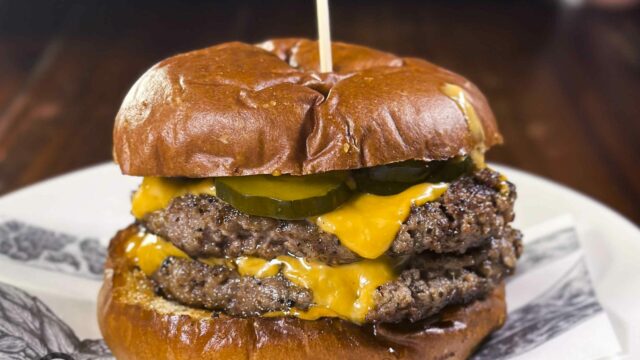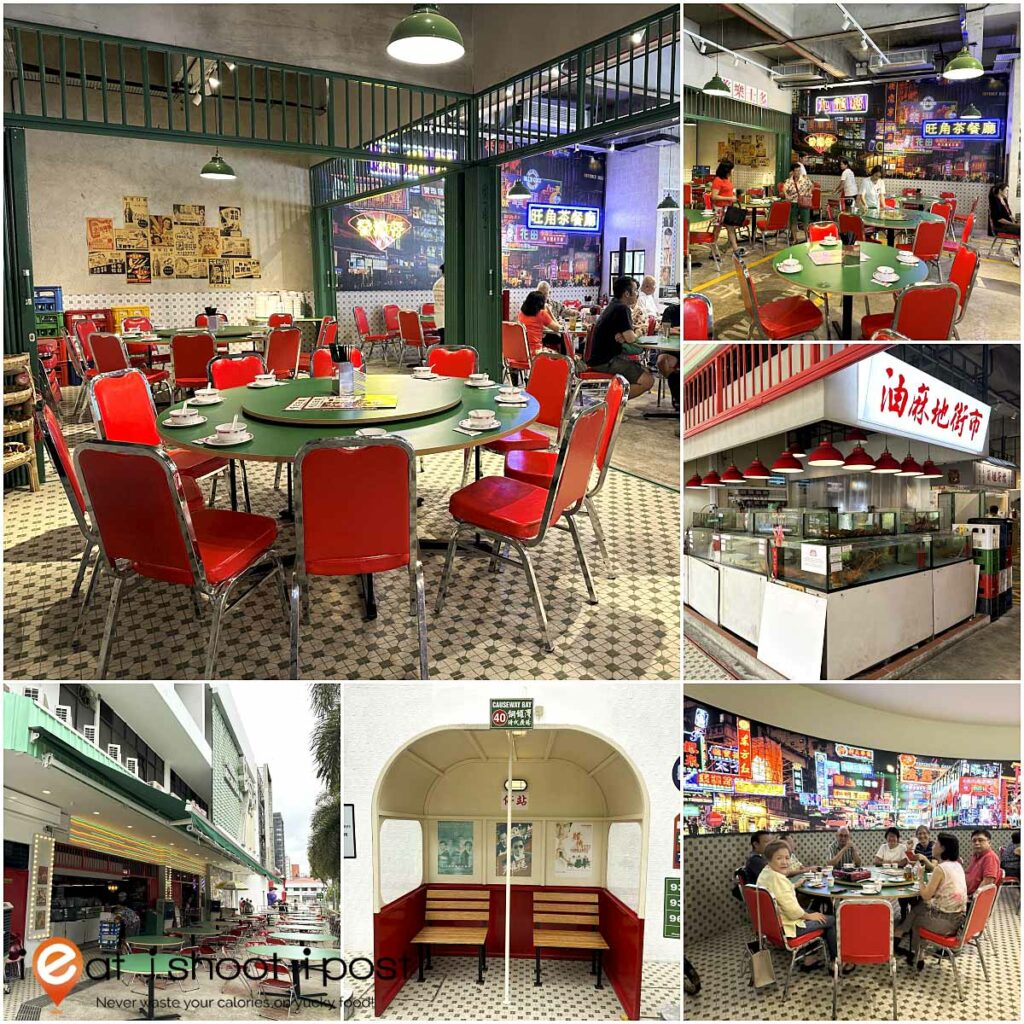
A Slice of 80’s Hong Kong at the Old Badminton Hall
If you’ve been to Hong Kong, the mention of “Dai Pai Dong” is likely to spark a tinge of excitement. These open-air food stalls are celebrated for their vibrant and informal dining experience. They have become iconic for their bustling atmosphere, where diners sit at communal tables and enjoy freshly prepared Cantonese dishes. “Dai Pai Dong” literally means “big license stall,” referring to the larger-than-usual licenses these vendors once received. Although new licenses are no longer issued and the number of Dai Pai Dong has dwindled, the remaining ones still evoke a sense of anticipation for good food, reminiscent of our own beloved street-side hawker centers.
Mr Reuben Chua, who previously helped launch Yun Nans in Singapore, is now recreating the Dai Pai Dong experience at the Old Badminton Hall. Taking over the former Fatty Weng space, he has transformed it into a charming eatery infused with nostalgic charm. While some might consider it an upscaled Zi Char, Reuben is quick to point out that he has designed it more like a scaled-down casual Cantonese restaurant. Notably, there’s no service charge, free cockage, and the restaurant offers options for al fresco dining and private karaoke rooms to cater to different occasions.
We recently held a Mid-Week-Makan session there and our kakis were quite pleased with the food as well as the old-school atmosphere.
Review of Dishes
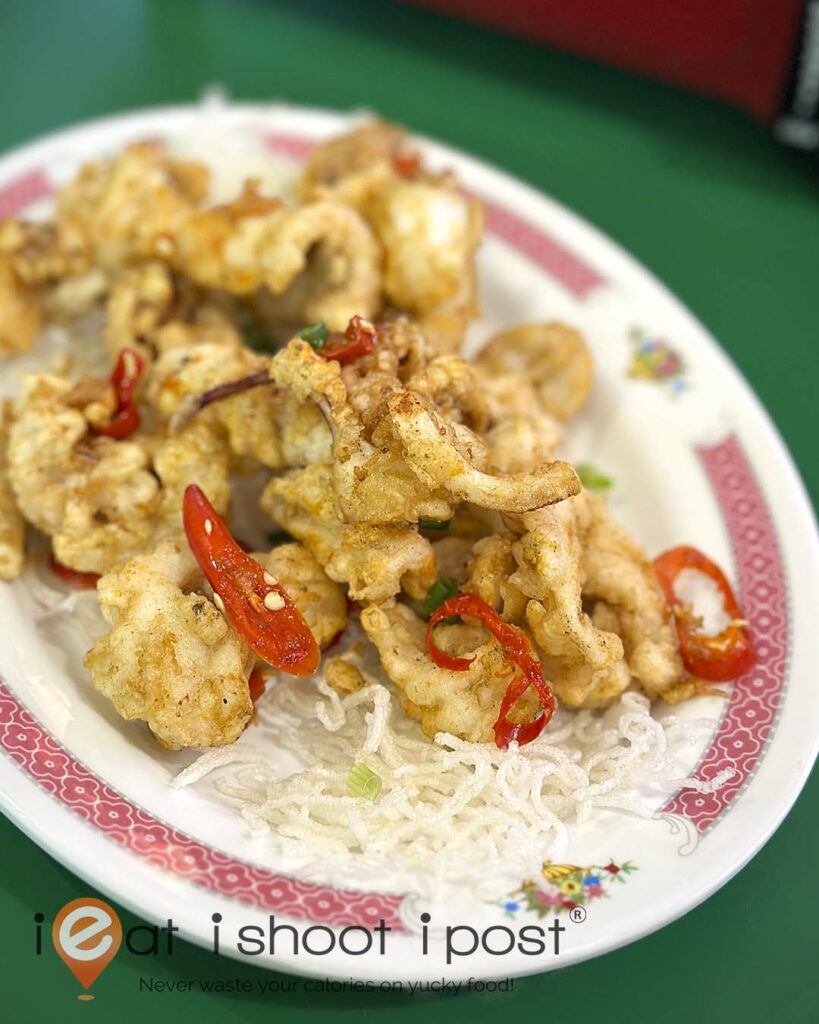
Despite the menu stating “deep-fried cuttlefish,” the dish is made using large local squids. These squids offer a substantial yet tender bite, complemented perfectly by the classic seasoning of salt and pepper. You’d think that it is hard to go wrong with crispy deep-fried squid but I have come across squid that is really chewy or completely tasteless because of the use of frozen processed squid! Thankfully, the one here is delicious, as it should be. 4/5
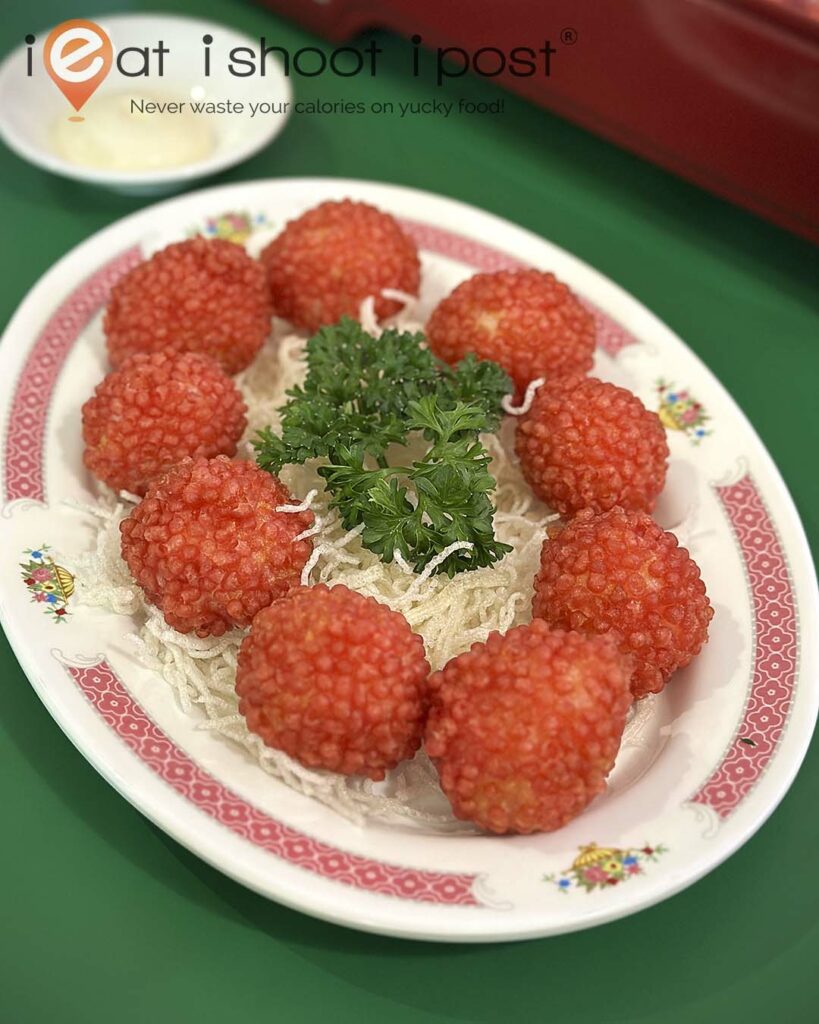
Lychee prawn balls have become increasingly popular in Chinese restaurants lately. Made from tiger prawn meat and coated with rice crisps colored with dragonfruit juice to mimic lychees, these balls are crispy on the outside and delightfully bouncy on the inside. It’s a dish that’s hard to resist. 4/5
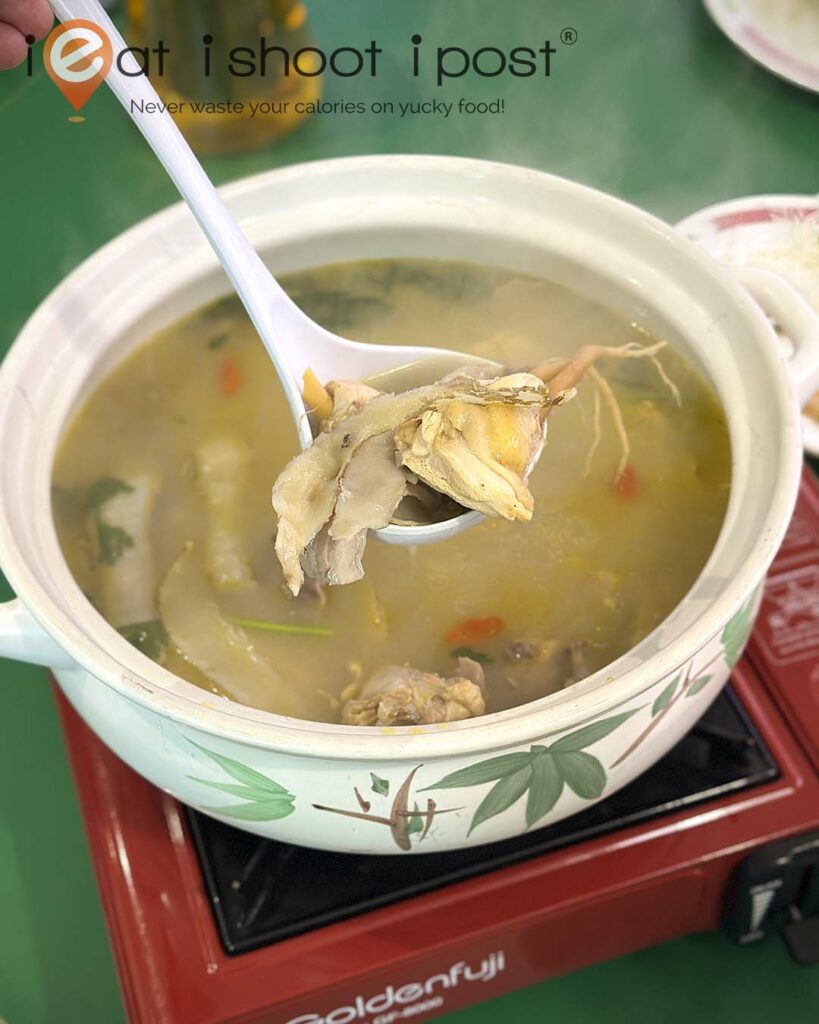
The Pig Stomach soup here offers a unique twist from the usual. Normally, I’m not fond of this delicacy due to its strong pork offal flavor. However, here they use a delightful chicken broth made from 150-day kampong chicken, infused with dang gui and ginseng instead of the usual pork bone broth. Reuben’s expertise with chicken soup from his time at Yun Nans is evident in every spoonful. The soup is spiced with a good dose of white pepper, providing a good amount of pungency without being too overpowering. This version of pig stomach soup is one I wouldn’t hesitate to order again. 4.25/5
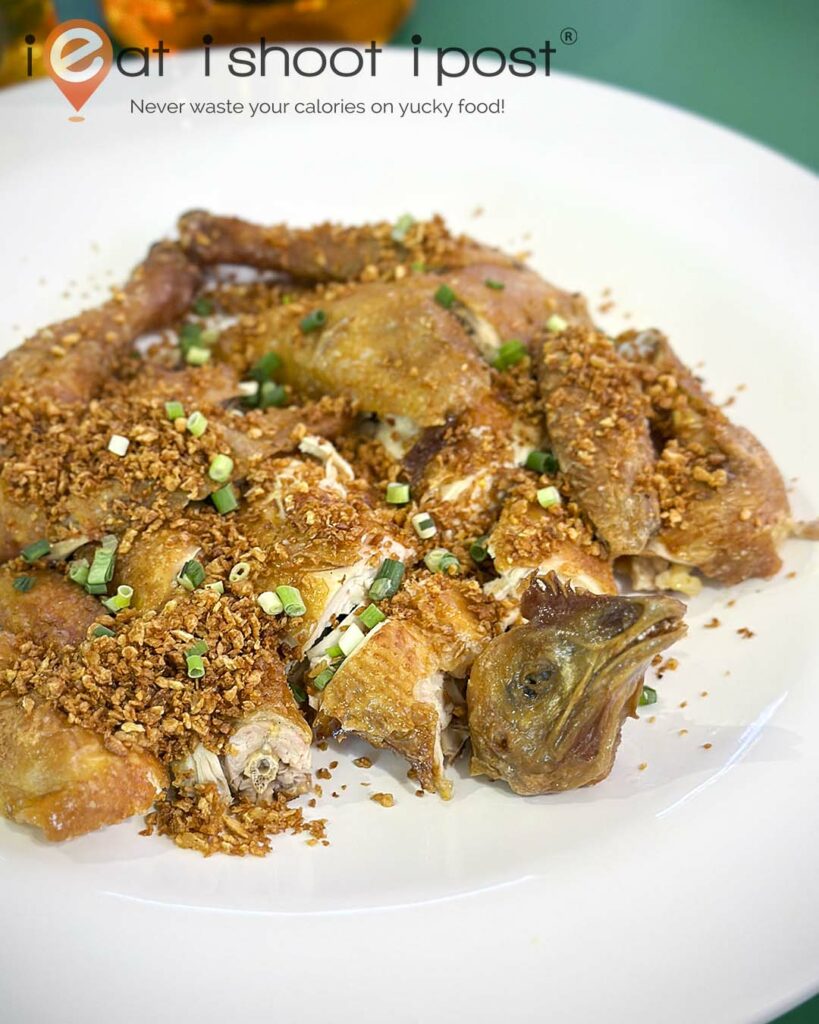
Their crispy roast chicken is also a little different from the ones we usually encounter at Chinese restaurants. They marinate a French Poulet for 8 hours with ginger, scallion, and lemongrass, followed by air-drying it overnight in a special fridge. The chicken is then fried to achieve a crispy skin and served with a generous heap of fried garlic. It’s a dish worth trying, but given its limited daily availability, it’s advisable to make reservations in advance. 4.25/5
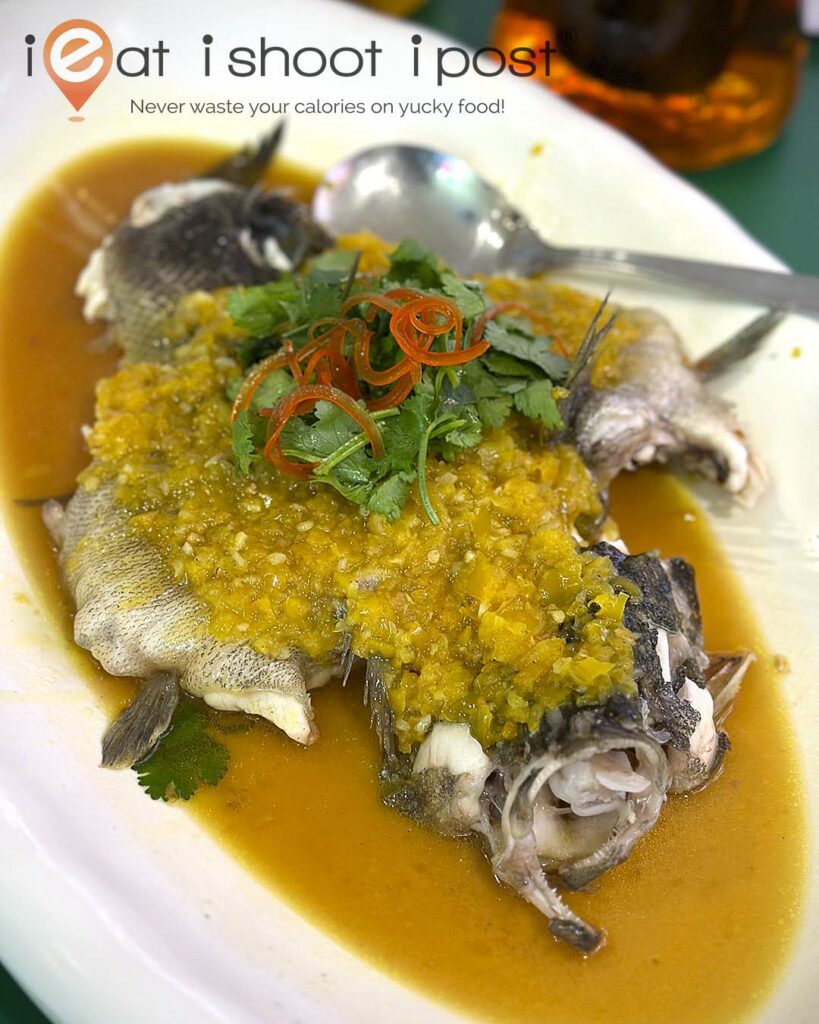
Their signature dish here is steamed fish served with a unique sauce made from yellow lantern chili, specially sourced from Hainan Island and pickled in-house. The sauce is blended with yellow capsicum and steamed together with the fish. While the fish itself is exceptionally fresh, opinions on the sauce were mixed among our group. Some of us enjoyed its distinct flavors, while others were less enthusiastic. Personally, I don’t feel compelled to reorder it, but it was certainly intriguing to try at least once. 4/5
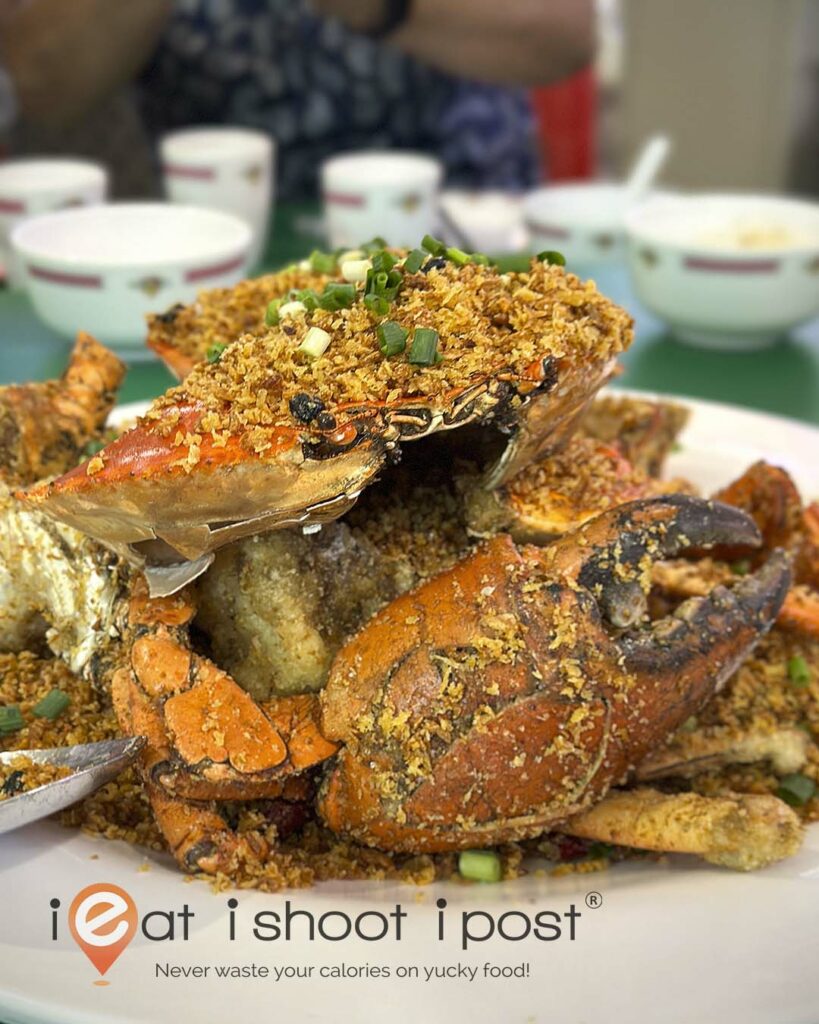
Lately, I’ve been enjoying quite a bit of “Typhoon Shelter” style seafood. This style of cooking originated from Hong Kong, named after the sheltered typhoon harbors where fishermen traditionally sought refuge during storms. This cooking method involves deep-frying seafood such as crab, prawns, or squid, and then tossing them in a flavorful mixture of garlic, chili, scallions, and other aromatic spices. The dish is often topped with a generous amount of crispy garlic and breadcrumbs, adding both texture and depth of flavor.
They have very solid crabs at Hey Kee and offer both Sri Lankan and Indonesian varieties. We had the medium-sized crabs (800g – 1 kg) that were already substantial, but they also offer massive 1.5kg crabs here, which have claws as big as your face!
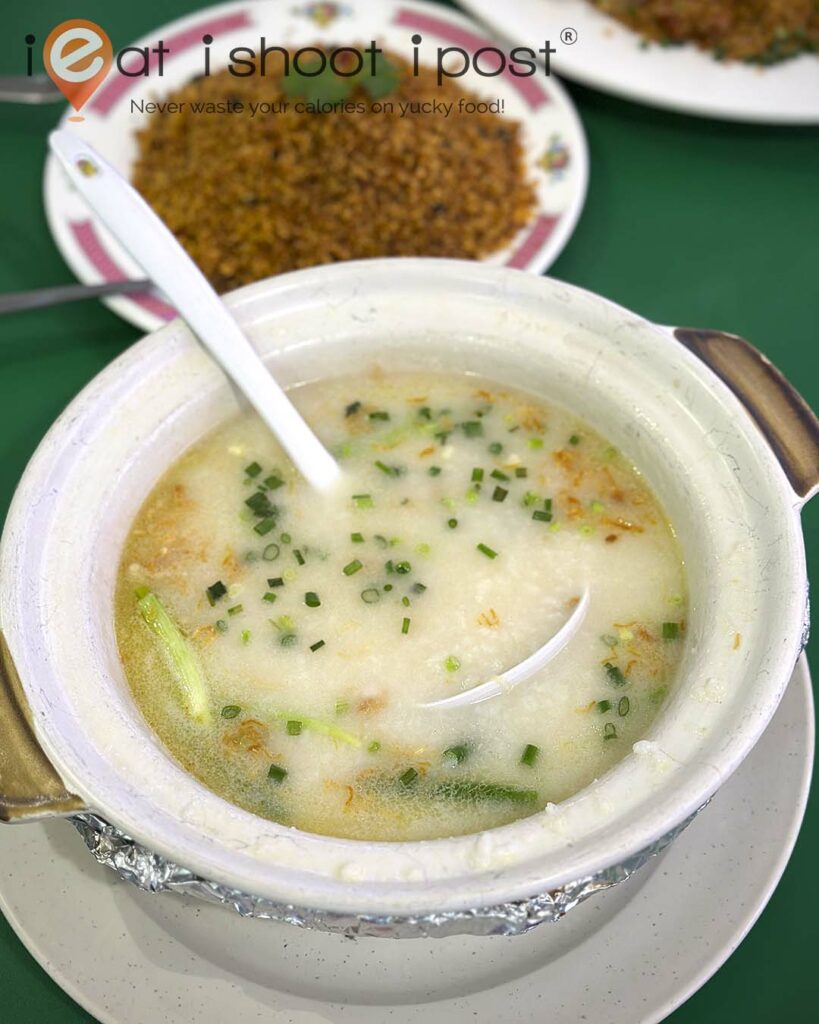
To fully enjoy the garlic crisps, it’s best to order their seafood porridge so you can add it as a garnish! It is quite a satisfying way to end a meal. While I appreciate the typhoon shelter style of cooking, personally, I tend to lean towards salted egg or black pepper crabs. Nevertheless, the quality of the crabs is excellent regardless of how they are prepared. 4.25/5
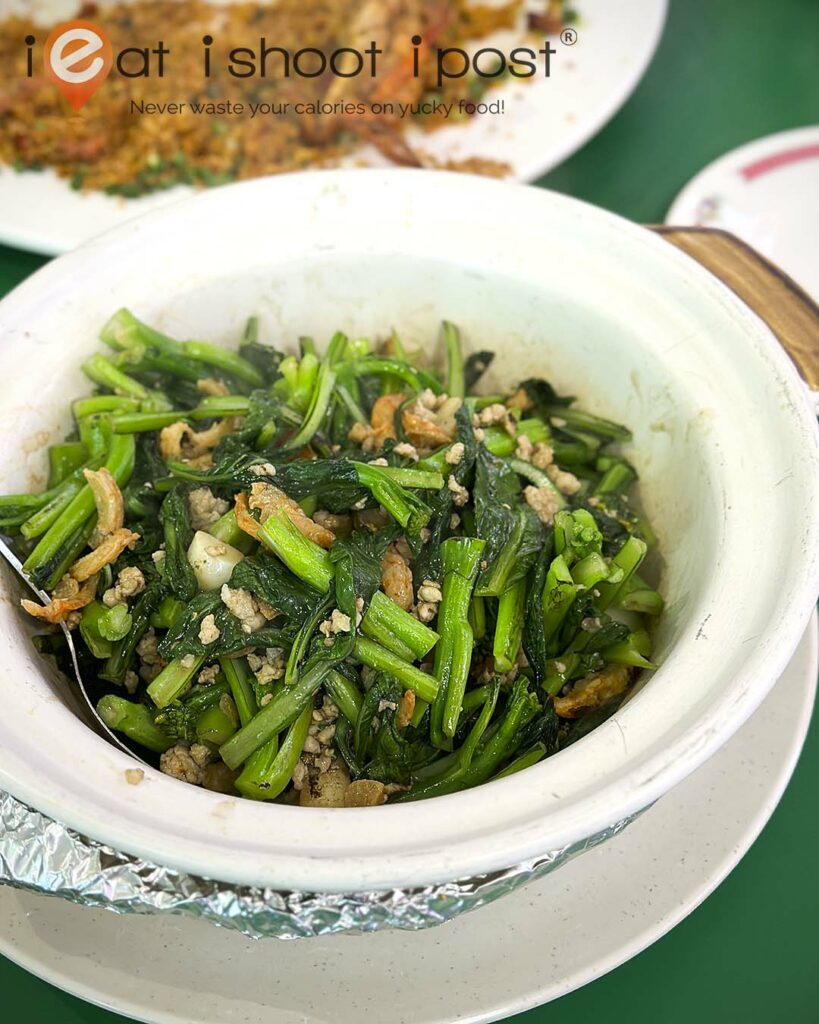
For vegetables, I highly recommend trying their choy sum with dried prawns. Normally, I’m not a fan of local chye sim due to its fibrous texture, but they use tender and sweet baby chye sim sourced from China. It’s served with minced pork seasoned with fermented prawn paste from Tai O island, along with special dried shrimps also from Tai O. This vegetable dish was truly a delight to enjoy! 4.5/5
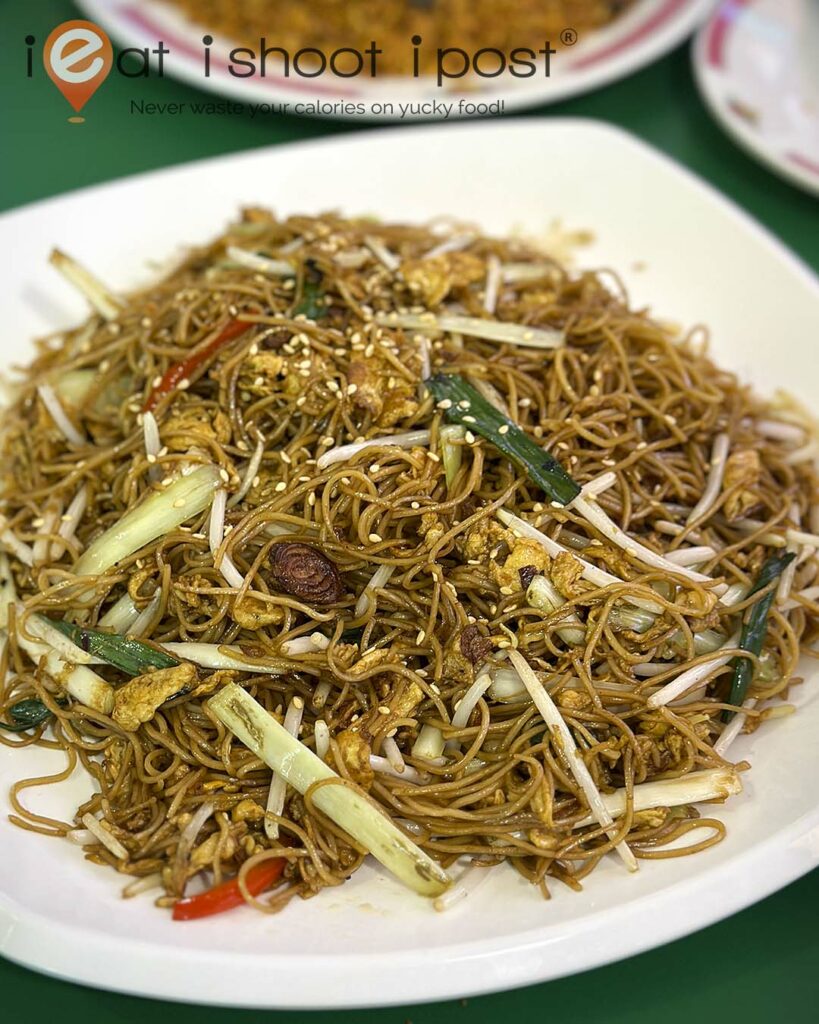
I enjoyed their fried Hong Kong noodles. They use dry scallop noodles specially imported from Hong Kong, which impart a delightful savory flavor with every bite. The noodles are simply stir-fried with eggs, bean sprouts, scallions, and red capsicum, and flavored with their blend of superior soy sauce. Simple but quite irresistible. 4.5/5
Conclusion
This is an excellent spot for a casual Hong Kong-themed meal. The nostalgic old-school decor, combined with private spaces and al fresco options, makes it perfect for any gathering. The food quality is top-notch with many ingredients sourced from Hong Kong and China. They are more expensive than a typical coffee shop Zi Char but more affordable than a flashy Cantonese restaurant.
Disclosure: We organize Mid-Week-Makan sessions at various restaurants to sample their food and if the experience is positive, we will publish a review. Participants cover the costs, though sometimes we do receive a discount and special attention from the restaurant owner, as is the case today.



